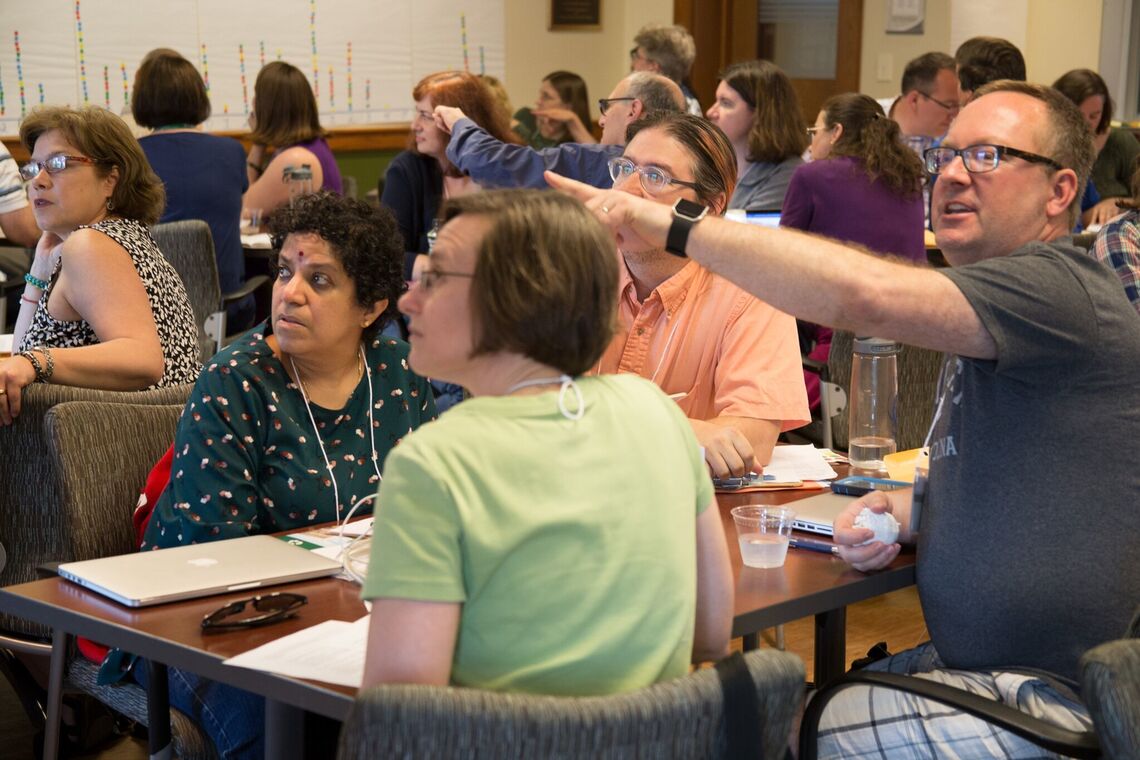Thursday October 10th, 2016

How often have you made a group assignment only to hear “I hate working in groups?” In fact, how many times have you worked as part of a group, only to feel frustrated? POGIL requires students to work in self-managed teams, generally of three or four students. So how does an instructor facilitate the groupwork so that it is productive and even enjoyable?
- Asking students to work in groups does not mean instructors can stand back and watch! It is important for instructors to interact with groups – facilitate – as they work on activities. Simple questions such as “do all of you have the same answer” or “can you explain that to the other people in your group” or “have you discussed that question with your group yet” reinforce teamwork.
- Decide how you want to assign students to groups. This will depend on your classroom structure and environment. For more ideas, see this previous POGIL blog.
- Emphasize the importance of good communication. Remind students to talk to each other. Use your classroom polling system to ask the class to rate their team’s communication. And make sure that they know each other’s names – it is always surprising to me how long it takes for students to get to know other students.
- Give a group quiz – especially using the IF-AT scratch-off forms (see this link) – these forms are like lottery tickets. These group quizzes really reinforce interdependence.
- Use roles! Sometimes I feel a little bit silly using roles. In POGIL workshops and POGIL materials, the most common roles include group manager, recorder, and presenter. However, in practice the roles students may use might be different from this. One student might be good at asking questions, another good with remember calculus. This semester I’ve been talking with my class about reflecting on the roles that they create within their own groups.
- Yes, it is possible to get students to work in teams in large classes! First – and believe it or not – students actually do what we tell them to do. Second, you can reinforce teamwork by assigning some credit to it. Consider doing the occasional group quiz, for example. Even one or two percentage points out of the total grade provides incentive for many students.
Below, one of my students writes about the roles students have taken on in her group. Her words prove to me that talking to students about roles, and asking them to use roles, is not silly – it is critical to the success of the groupwork.
After briefly talking about group roles in class I felt that our group worked through the activities better. Generally I felt that my role became the question-asker. If I saw key words or concepts that I thought we should define together in the process of working through questions, I asked the group and we worked through definitions together. This particularly helped us when we were stumped on model two of activity S3 … One of my group members is strong in calculus and partial differentials. Whenever we needed to derive or write out a mathematical relationship to the concepts we discussed he was able to guide and help make sure we understood the answer and helped us with any questions we had. Another of my group member did well with visualizing models and coming up with example models to explain difficult concepts and how they relate to one another. With his help we were able to get a clear picture in our heads of the relationship between variables. The last (but not least) group member was good at keeping us on task with discussions. He kept us focused by considering how our discussions would be relevant to the questions being asked and to make sure we were moving through all the questions in the activities. These were the general trends I saw but I do not want to box anyone in to their roles. I think all of us at some point have done each of these roles to learn about the concepts being discussed.